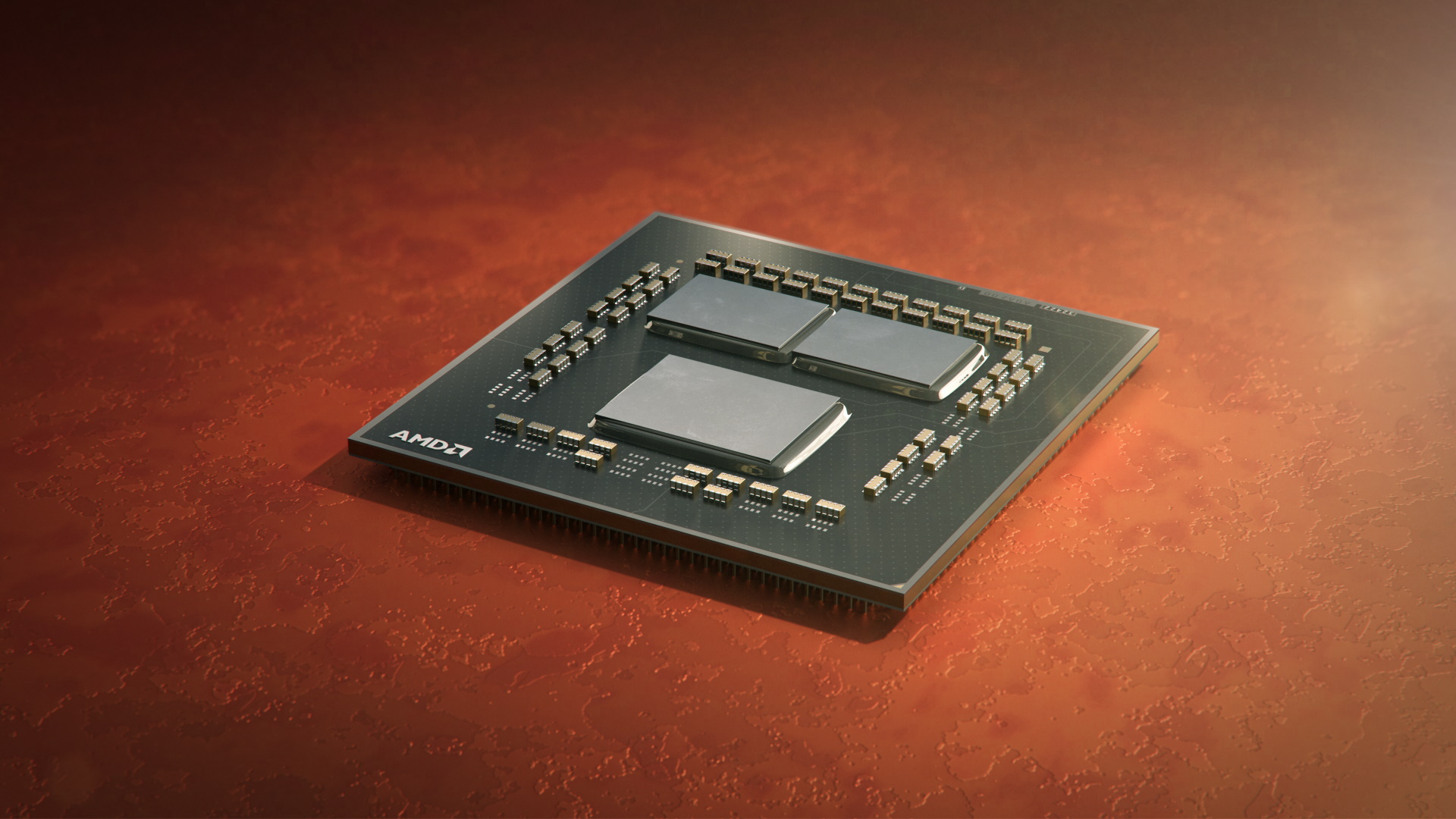AMD's Ryzen CPU refresh may have been cancelled due to the chip crisis
Rumours have it that the 'Warhol' Zen 3+ range has disappeared from AMD's roadmaps.

AMD might have cancelled this year's expected new Ryzen CPUs, according to the YouTube channel RedGamingTech, citing unnamed, but previously reliable sources. The Zen 3+ refresh, reportedly code-named Warhol, was due in the latter part of this year, but has apparently disappeared from some roadmaps. The main reason given for this is the current supply problems affecting the whole industry, which makes sense, although it could also have been simply left off the roadmaps in error.
One of the most intriguing aspects of this Zen 3+ refresh is that it is down to use TSMC's 6nm production process. At least it is according to some slides, older slides still had it down to use the same 7nm process that Zen 3 used.
This is somewhat of an odd process for AMD to use, as that node doesn't offer much in the way of a performance boost, and Zen 4 is still down to use TSMC's 5nm production process. The newer node, named 6N by TSMC, is only a tweaked version of the 7N process AMD currently uses, but is design-compatible with the previous designs. So it's not like it was a node that AMD felt it needed to try out before its next big launch. Still, AMD shifted from 14nm to 12nm for its Zen+ refresh, so it isn't unheard of.
The Zen 3+ refresh wasn't expected to offer any serious architectural changes, rather some single-digit IPC improvements to keep AMD's chips competitive with Intel's offerings.

Best CPU for gaming: the top chips from Intel and AMD
Best graphics card: your perfect pixel-pusher awaits
Best SSD for gaming: get into the game ahead of the rest
There really isn't much between Intel and AMD right now, at least not when it comes to gaming, and if anything it's the supply situation that is giving Intel the lead when it comes to sales.
Intel is definitely the company to watch this year as it releases one of its biggest gambles in processor design in recent memory with the launch of Alder Lake. These are the CPUs that have the big.LITTLE hybrid design (traditional cores paired with efficient Atom-based cores), as well as offering support for DDR5 and PCI Express 5.0.
Zen 4, which offers the same PCIe 5.0 and DDR5 support isn't due until next year, which means Intel potentially has as much as a year-long lead for anyone looking to jump on these next-generation technologies. Intel is also promising big things for Alder Lake when it comes to performance, but we'll have to wait and see on that front. It's a whole new design for a desktop chip and feels like a hell of a gamble for Intel.
Keep up to date with the most important stories and the best deals, as picked by the PC Gamer team.
0.6 pic.twitter.com/7Ju3yVwXQpApril 17, 2021
It's too early to say for sure whether this potential—and unofficially announced—Zen 3+ refresh has been canned, but this may give AMD the opportunity to focus on its current Zen 3 lineup instead, and push to get those processors in shops.
We're still holding out hope that we'll see Zen 3-based APUs appearing this year as well, which AMD has promised to offer out to DIY enthusiasts too. They're definitely ones to get out during a GPU crisis after all.
Alan has been writing about PC tech since before 3D graphics cards existed, and still vividly recalls having to fight with MS-DOS just to get games to load. He fondly remembers the killer combo of a Matrox Millenium and 3dfx Voodoo, and seeing Lara Croft in 3D for the first time. He's very glad hardware has advanced as much as it has though, and is particularly happy when putting the latest M.2 NVMe SSDs, AMD processors, and laptops through their paces. He has a long-lasting Magic: The Gathering obsession but limits this to MTG Arena these days.


